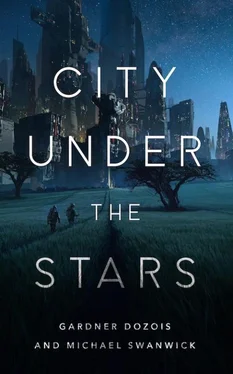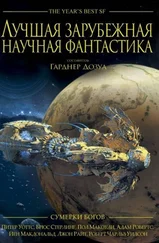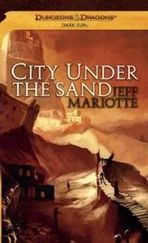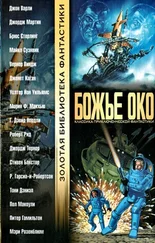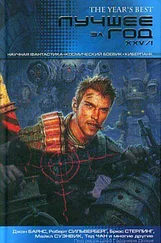The guards looked in on him and then went hurriedly away, and in a few moments, Overton was there, peering puzzledly at him, and then prodding Hanson’s unmarked shoulder where his skin had been burnt and blackened with hot irons the day before. He gestured impatiently, and the guards dragged Hanson away to the basement room, where they did it all again.
This went on for days, the guards torturing Hanson while he begged them to just tell him what they wanted him to say and he’d say it, Hanson’s wounds miraculously healing at night, leaving him hale enough to be tormented again the next day.
One day in the windowless room, Overton, who until now had been silent during their sessions, greeted Hanson with an apologetic smile and said, “I’m sorry about this, Hanson, I really am. It’s nothing personal. It’s just my job.” Two guards seized Hanson and wrestled him down into a chair, while another stretched Hanson’s arm out across a thick wooden butcher’s block that hadn’t been there before that day. They strapped Hanson’s arm in place, and one of the guards picked up an ax.
“For the love of God,” Hanson said, his voice cracking shrilly in terror in the middle of the words, “don’t do this!”
Overton shrugged philosophically. “Consider it a scientific experiment,” he said, and then gestured to the guard, who stepped forward, hefted the ax, swung it aloft, and then cut Hanson’s hand off with one crashing blow.
Hanson screamed. It actually didn’t hurt as much initially as some of the other things that had been done to him in that room, but he could see blood fountaining from the stump of his wrist, and his throat squeezed shut with fear. Light rapidly drained from the world, the periphery of his vision going first, everything narrowing down to a cone. The room filled up with darkness.
The last thing he saw was Overton leaning forward to peer at him, and then laughing whimsically and saying, “Let’s see him grow that back!”
He did. It took almost two days for Hanson’s hand to grow back, another day for him to recover full use of his fingers.
Overton came to Hanson’s cell, stared at the regrown hand, and left without a word, looking frightened. The guards also gave him fearful looks out of the corners of their eyes, showing the whites, and backed out of the cell, closing the door behind him.
* * *
There were no more torture sessions after that. Two or three times a week, Hanson—who had by this point been allowed a change of clothes—would be “invited” to Overton’s office, where Overton would be sitting at his desk, head bowed over some papers. “Sit down,” he would always say. “I’ll be right with you.” As if they two had a professional relationship, as if Hanson were his client and had an appointment to be here, as if he were simply providing a service that Hanson required—as if the days Hanson had spent in the torture chamber had never happened at all. He would be placed in a straight-backed wooden chair in front of Overton’s desk, sometimes given a cup of chicory or even a mug of applejack, and encouraged to “have a nice talk” with Overton, who wrote everything Hanson said down in a notebook in a surprisingly neat and even delicate hand. Hanson cooperated with this process as best he could, anxious to keep Overton in what Hanson thought of as “Good Overton” mode; he was already all too familiar with “Bad Overton.” After a while, though, having gone over his experiences in the City of God—it seemed they believed now, belatedly, that he’d really been inside the Wall—in exhausting detail more than once, he ran short of things to say, and Overton filled the gap by rambling on about himself, becoming expansive and discursive, and not a little self-aggrandizing, boasting about his position and his prowess, telling Hanson all about the problems and tribulations of running a prison full of recalcitrant hard-core prisoners who didn’t understand all the lengths he went to in order to help them. Hanson found this more than a little creepy, but it was better than being burned with red-hot irons, even if his flesh was going to heal the next day, so he did his best to play up and look interested and attentive.
The last time Overton had Hanson brought to his office, though, before Hanson had even had a chance to sit down, Overton had frowned and said, “I have asked for advice on your case. The responsibility has been passed on. There’s nothing more I can do.” He then gestured dismissively, impatiently, as if Hanson was wasting his valuable time by importuning him with unreasonable requests about inconsequential matters. The guards hustled Hanson away, back to his cell.
After that, he was left alone. They never came for him anymore, no one asked him any more questions. In fact, he barely saw another living soul from one week to the next, except when the guards came into his cell to empty his slop jar, keeping a wary, almost frightened eye on him while they did so, and refusing to speak.
He was left alone in his cell, only occasionally hearing another human voice far off somewhere in the corridors outside. He learned to relish and even long for the off-key whistling of the guard as he went by on the other side of the door, a sound other than his own breathing, and eventually learned which tunes the guard most liked to whistle. Once he started whistling the same jig that the guard was whistling as he passed, and the guard’s whistling cut off with a frightened abruptness and didn’t start up again for several days.
He lost track of time. Had months gone by, or years? Winter came, and left, and came again.
* * *
Hanson looked out his window. It was the only thing left to him, his lifeline to the world beyond his cell, and he drank in the bright, moving, multicolored normality that came in through it like a man desperately breathing through a hole in the ice.
He came to know every branch visible in every tree, the shape and size and colors of their leaves and berries, where every bird had its nest. He learned to identify the different kinds of birds by their calls, and even, through patient listening, came to gain some idea of what information those calls contained, whether it was “This is my tree!” or “I want a mate!” or “Look out for the fox!” There were marmoset-like little creatures living in the rocks at the near end of the field, and he watched avidly as they went about their daily dramas, squabbling over territory and mates, whistling shrill alarm calls and hiding from predators—or presumed predators, since Hanson never saw any—in amongst the rocks; one whole summer they tried doggedly to teach themselves how to light a fire, making piles of branches and dry tinder, breaking Hanson’s heart by failing again and again and again. Occasionally, a bee or a fumblefoot would buzz by the window, sometimes even coming in through the bars to zip around inside the cell before finding their way back out again. One glorious day, a hawk struck a pigeon just outside the window, and carried it to a nearby stump to eat, tearing at the pigeon’s breast and releasing a swirling cloud of torn white feathers as it fed that rose and danced on the wind, Hanson luxuriating in the motion—motion! A flurry of blessed activity and change in a static world! Something different!—like a man dying of thirst who’s been offered cool water. Very occasionally, the highlight of the week, the memory of which he would cherish and turn over in his mind again and again until it was polished smooth, riders on horseback or a wagon would pass in the curve of the road visible at the far end of the meadow. Once, in the dog days of summer, heat hanging in the air as thick as honey, he saw a naked little boy driving a herd of bedraggled, ulcerated, two-headed goats before him. In the spring and fall, deer would sometimes come out of the deep woods near the marmoset rocks, some of them bearing glossy radiation scars from where they’d come in contact with one of the old “hot spots,” and blink at him with their sad, liquid eyes. If he spoke to them, trying to coax them closer, or perhaps just to hear his own voice, they would vanish like ghosts.
Читать дальше
